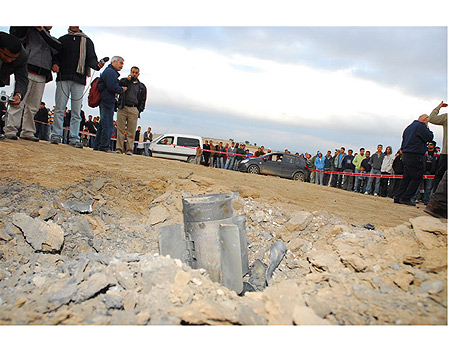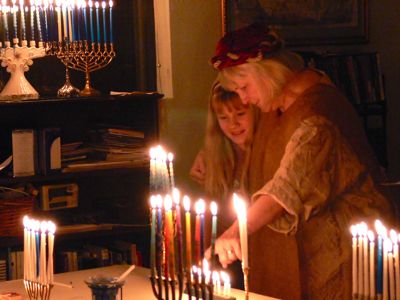 Why is it that at times, the thing that we want is probably not very good for us? Like that pint of Ben and Jerry’s? Or Facebook? (After all, do we really need to know what every person we know is doing at every moment of the day? When do “friends” become a distraction?) Yaakov’s fears in Vayigash remind us that sometimes the path towards growth involves traveling the road that we fear the most.
Why is it that at times, the thing that we want is probably not very good for us? Like that pint of Ben and Jerry’s? Or Facebook? (After all, do we really need to know what every person we know is doing at every moment of the day? When do “friends” become a distraction?) Yaakov’s fears in Vayigash remind us that sometimes the path towards growth involves traveling the road that we fear the most.After Yosef reveals himself to his brothers, he insists that they return to Canaan to collect Ya’akov and move the family down to Egypt. Ya’akov, while excited about his reunion with Yosef, reacts with fear. What will happen to him and his family and to the promise of Eretz Yisrael? If you think about it, his fears make sense. He knows what’s available to his grandchildren in Egypt: the Internet, that crazy Egyptian music, and the clothing and culture. Sound familiar? (OK – maybe they didn’t have email back then.)
His fears are so well-founded that Hashem must address them, telling Ya’akov:
אל תירא מרדה מצרימה, כי לגוי גדול אשימך שם
“Don’t be afraid to go down to Egypt, for I will make you a great nation there.” (Bereishit 46:3)
Yet, Yaakov’s questions make sense. Why should he bring his entire family down to Egypt? Couldn’t Yosef send them food and let them stay in the Promised Land? Why does Hashem want the entire family to move to Egypt?
S’forno explains that staying in Canaan would have actually been more dangerous and detrimental than moving to Egypt. He says that Hashem tells Ya’akov, “If your children stay here, they would marry the nations of the land and become intermingled with them. But in Egypt that won’t happen, ‘because the Egyptians will not eat bread with the Hebrews (43:32). In this way, they will become a great nation.” S’forno says that Hashem wanted Ya’akov to move his family to Egypt precisely because life would be harder for them there. They would be rejected as outsiders, never accepted or integrated into Egyptian society. But in that way they would grow to be a great nation – and a Jewish nation.
Sure, it would have been easier to stay in Canaan. But taking the easier path would have undoubtedly led to assimilation, intermarriage, and the slow but definitely decline of Yaakov’s family and legacy.
Thank God, none of us (I hope) face this challenge of intermarriage and assimilation directly. We understand the importance of maintaining a sense of identity and individuality as Jews, no matter where we may live. But we do face the larger question each and every day: do we take the easy path which we want or the harder path that we need? Do we sit down to the computer to check our email (yet again), or use that half-hour to learn about the parshah? Do we choose the ice cream (easy and good) or make that salad (hard, but also good in a different way?
These choices are really up to us.









